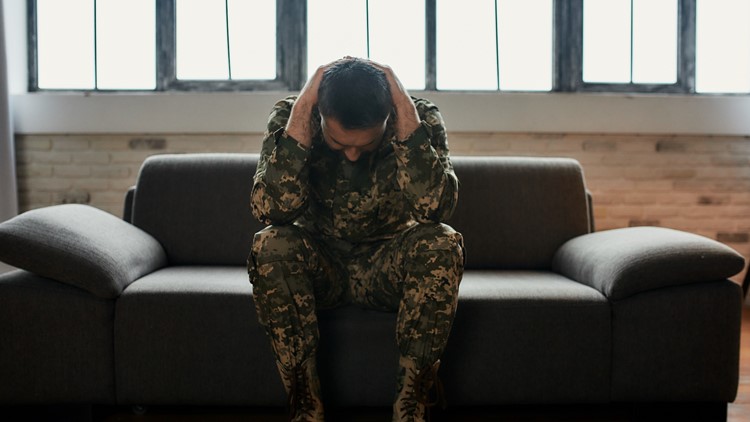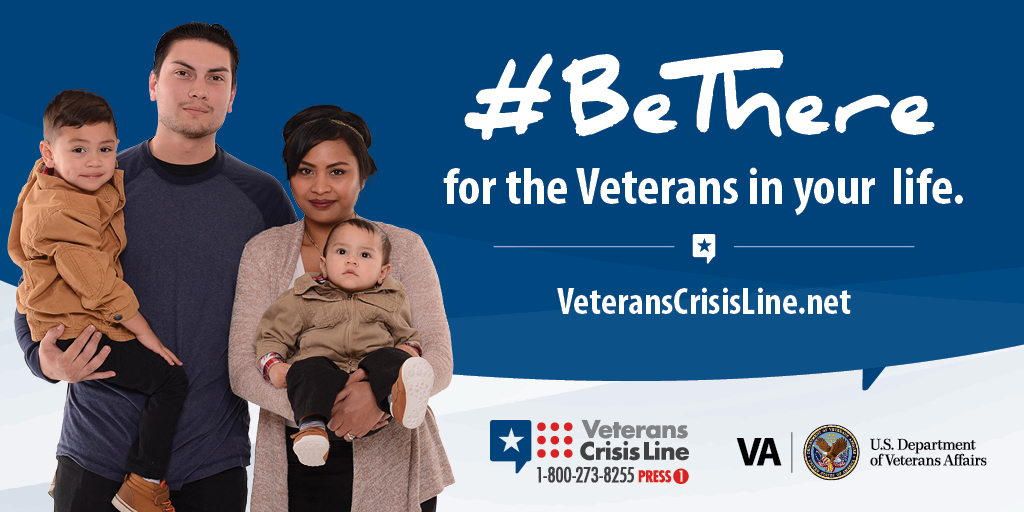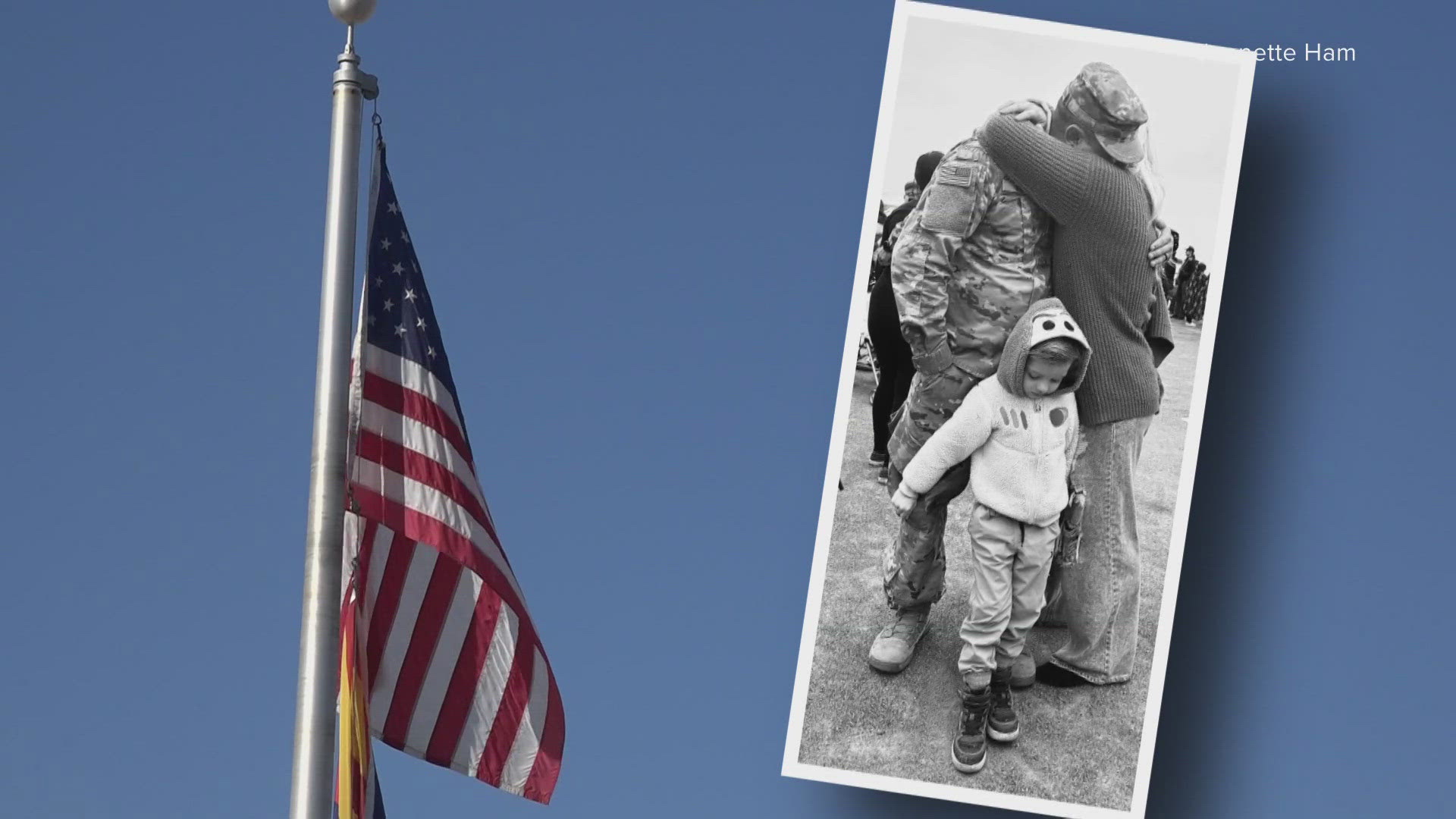ARIZONA, USA — The suicide rate of veterans in Arizona is significantly higher than the national veteran suicide rate and the national suicide rate in general.
Arizona veterans have a suicide rate of 44.9 compared to the National Veteran Suicide Rate of 31.0 and the National Suicide Rate of 18.1, according to the most recent Veteran Suicide Data Sheet from the U.S. Department of Veterans Affais. Statewide, veterans are more likely to die by suicide than non-veterans.
Veterans Day is held on Nov. 11 every year in order to honor the courage and commitment of the military veterans of the United States. But, during this time of celebration, it is important to remember that many of our veterans across Arizona and the nation came back with wounds, some harder to see than others.
Below is a list of mental health resources designed specifically for veterans across Arizona. It is not a complete list. If you happen to have any other resources that should have a place on this list, feel free to email them to connect@12news.com with the subject line "Veteran Resources."
If you're in a crisis:
If you are experiencing a behavioral health crisis, please call one of the following crisis lines.
Veteran-specific crisis hotlines:
- Veterans Crisis Line:
1-800-273-8255 (press 1) - Be Connected:
1-866-4AZ-VETS (429-8387)
Reservation Resources:
- Navajo Nation:
800-259-3449 - Pascua Yaqui Tribe:
520-883-5020 - White Mountain Apache Tribe:
877-336-4811
Arizona county-specific suicide and crisis hotlines:
- Maricopa County:
602-222-9444 or 1-800-631-1314 - Gila River and Ak-Chin Indian Communities:
1-800-259-3449 - Salt River Pima Maricopa Indian Community:
1-855-331-6432 - Apache, Coconino, Gila, Mohave, Navajo and Yavapai:
1-877-756-4090 - Cochise, Graham, Greenlee, La Paz, Pim, Pinal, Santa Cruz, and Yuma:
1-866-495-6735
National 24-hour crisis hotlines:
- National Suicide Prevention Lifeline:
1-800-273-TALK (8255)
How to recognize when a veteran you know needs help:
The Arizona Department of Veterans' Services offers a list of warning signs to look out for in order to recognize when a veteran or civilian you know is mentally unwell or is at risk for suicide.
Veteran specific risks:
- Frequent deployments
- Deployments to hostile environments
- Exposure to extreme stress
- Physical/sexual assault while in the service (not limited to women)
- Length of deployments
- Service related injury
General risks:
- Talking about wanting to hurt or kill oneself
- Trying to get pills, guns, or other means to harm oneself
- Talking or writing about death, dying or suicide
- Feeling hopeless
- Experiencing rage, uncontrolled anger or seeking revenge
- Acting reckless or engaging in risky activities
- Feeling trapped, like there's no way out
- Saying or feeling there's no reason for living
- Abusing drugs or alcohol
- Withdrawing from friends or family
- Having dramatic changes in mood
- Sleeping too much or too little
- Giving away possessions
In-person care options for veterans:
The Veterans Health Administration, and the U.S. Department of Veterans' Affairs at large, provide suicide prevention coordinators and multiple other resources at medical centers and community-based clinics across Arizona, according to the Arizona Department of Veterans' Services.
The following is a list of mental health resources from the department that you can contact for help and/or treatment:
US Department of Veterans’ Affairs Suicide Prevention Points of Contact:
- Phoenix VA South:
800-554-7174 ext. 6731 - Northern Arizona VA (Prescott):
800-949-1055 ext. 2705 - Southern Arizona VA (Tucson):
800-470-8262
Resources by community:
- Anthem:
VA Community Based Outpatient Clinic
623-551-6092 - Bellemont:
VA Community Based Outpatient Clinic
928-2266-1056 - Buckeye:
VA Health Care Clinic
623-386-6093 - Casa Grande:
VA Community Based Outpatient Clinic
520-836-2536 - Chinle:
Chinle Vet Center
928-674-3682 - Cottonwood:
VA Community Based Outpatient Clinic
928-649-1523 - Flagstaff:
Northern Arizona Regional Behavioral Health
877-756-4090 - Globe-Miami:
VA Health Care Clinic
928-445-0027 - Green Valley:
VA Community Based Outpatient Clinic
520-629-4900 - Hotevilla:
Hopi Vet Center Outstation 2
928-734-5166 - Kingman
VA Community Based Outpatient Clinic
928-445-4860 ext. 6830 - Lake Havasu City:
VA Community Based Outpatient Clinic
928-680-0090 - Mesa
Southeast VA Health Care Clinic
602-222-6568
Mesa Vet Center
480-610-6727 - Payson:
VA Health Care Clinic
928-472-3148 - Phoenix:
VA Hospital
602-277-5551
Thunderbird VA Health Care Clinic
602-633-6900
Phoenix Vet Center
602-640-2981 - Prescott:
VA Hospital
928-445-4860
Prescott Vet Center
928-778-3469 - Safford:
VA Community Based Outpatient Clinic
520-629-4900 - Show Low:
VA Health Care Clinic
928-532-1069 - Sierra Vista:
VA Community Based Outpatient Clinic
520-792-1450 - Surprise:
Northwest VA Health Care Clinic
623-251-2884 - Tempe:
EMPACT Suicide Prevention Center
480-784-1514 - Tucson:
VA Hospital
520-792-1450
VA Northwest Tucson Clinic
520-792-1450
VA Southeast Tucson Clinic
520-792-1450
Southern Arizona Mental Health Corporation
520-617-0043
Tucson Vet Center
520-882-0333 - Yuma
VA Community Based Outpatient Clinic
520-792-1450 or 800-470-8262
Yuma Vet Center
928-341-1046
How veterans can access and/or pay for behavioral health resources:
The Arizona Health Care Cost Containment System has a flowchart which can help inform veterans and civilians of options available that help in accessing and paying for Arizona behavioral health services:





